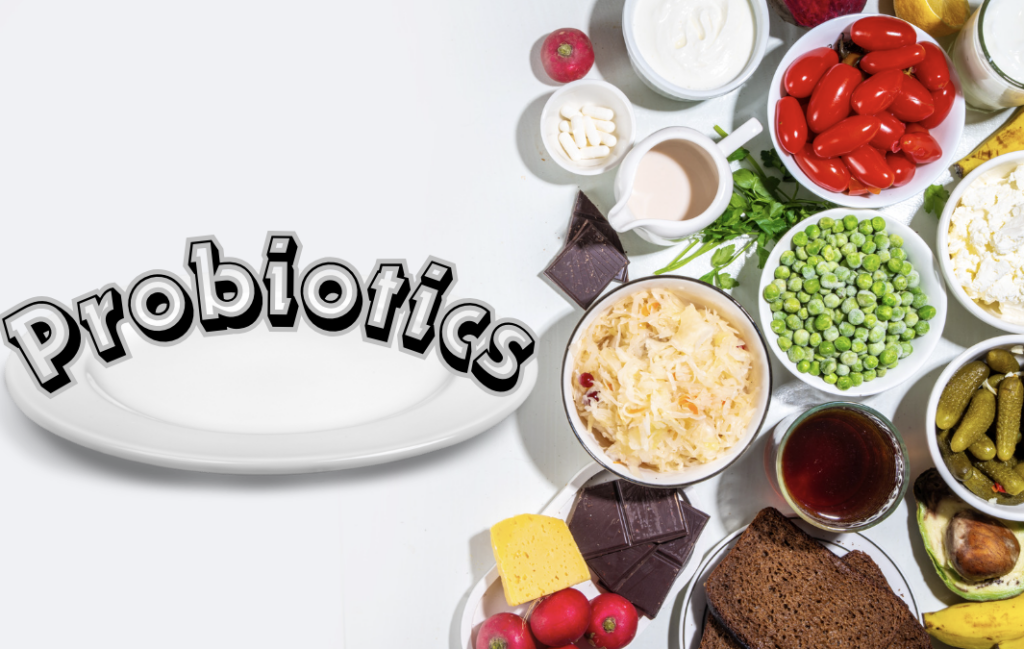What to Eat and Drink
How Postbiotics Can Transform Your Health
In today’s world of health and wellness, we are continually assaulted with terminology like probiotics and prebiotics. But have you heard about postbiotics? You might be wondering what they are and why they’re significant. Okay, let me enlighten you.
Understanding Postbiotics
Postbiotics are byproducts of probiotics, the helpful bacteria that live in our gut. When probiotics act, they create a variety of chemicals, including enzymes, vitamins, short-chain fatty acids, and antibiotic compounds. These beneficial molecules are referred to as postbiotics, and they play an important part in preserving our general health and wellness.
The Role of Postbiotics in Gut Health
A healthy gut is the cornerstone of overall health, and postbiotics play an important role in maintaining a balanced gut environment. Probiotics produce helpful substances that aid to establish an ideal environment for the growth and multiplication of these beneficial microorganisms. They also serve to control the gut’s pH, making it unfriendly to dangerous bacteria.
Postbiotics have also been shown to protect the gut lining. They assist enhance the gut’s barrier function, preventing toxins, infections, and undigested food particles from entering the bloodstream. This can assist to lower the risk of inflammatory bowel illnesses and enhance overall digestive function.

The Benefits of Postbiotics for the Immune System
Our immune system protects us against infections and diseases. Furthermore, postbiotics have been shown to improve our immune system. Probiotics create helpful substances that encourage the formation of immune cells such as natural killer cells and T-cells, which are necessary for fighting diseases.
Postbiotics also have anti-inflammatory characteristics, which can aid in immunological regulation and the reduction of chronic inflammation in the body. Chronic inflammation has been related to a variety of health issues, including autoimmune illnesses, allergies, and even some types of cancer. Postbiotics, which promote a healthy immune system, can help prevent and manage certain illnesses.
Postbiotics and Their Impact on Mental Health
The gut-brain connection is an intriguing topic of study, and new research has revealed that the health of our gut bacteria might have a significant impact on our mental health. Postbiotics, or probiotic byproducts, play an important role in this link.
Probiotics’ beneficial components have been shown to improve neurotransmitter production, including serotonin, also known as the “feel-good” hormone. Serotonin is responsible for regulating mood, sleep, and hunger. By promoting a healthy gut environment through postbiotic production, we may be able to improve our mental health and overall well-being.

How Postbiotics Contribute to Overall Well-being
In addition to their role in gut health, immunological function, and mental health, postbiotics improve our overall well-being in a variety of ways. Probiotics’ beneficial components have been shown to have antioxidant qualities, which serve to protect our cells from oxidative stress and free radical damage.
Furthermore, they have demonstrated to increase nutrient absorption in the gut, allowing us to get the most out of the foods we consume. They also aid in the regulation of carbohydrate and lipid metabolism, which can improve weight management and general metabolic health.
The Science Behind Postbiotics
The science of postbiotics is still emerging, but researchers are learning more about their mechanisms of action and health advantages. Studies have demonstrated that they can influence the expression of genes involved in a variety of biological processes, including inflammation, metabolism, and immunological function.
Furthermore, postbiotics have been shown to interact with human gut microbiota, boosting the growth of helpful bacteria and limiting the growth of harmful bacteria. This balance is critical for a healthy gut environment and general health.
Sources of Postbiotics in the Diet
Now that we’ve established the relevance of postbiotics, let’s look at the finest dietary sources for incorporating them into our daily life. Fermented foods are an excellent natural source of postbiotics. Yogurt, kefir, sauerkraut, kimchi, and tempeh are high in probiotics, which are helpful bacteria.
Dietary supplements can also help you improve your postbiotic consumption. There are several postbiotic pills on the market that can deliver a high dose of these beneficial substances. However, it is always advisable to consult with a healthcare practitioner before beginning any new supplements.

Incorporating Postbiotics into Your Daily Routine
Now that you understand the value of postbiotics and where to find them, it’s time to incorporate them into your daily life. Start by including fermented foods into your diet. Enjoy a cup of yogurt with your breakfast, sauerkraut or kimchi as a side dish, or a glass of kefir for a lunchtime snack.
If you prefer supplements, make sure to get a high-quality product from a trusted brand. To gain the best advantages, take them at the prescribed dosage and on a consistent basis. Remember, consistency is essential for improving your gut health and general well-being.
Prebiotics vs. Probiotics vs. Postbiotics: What’s the Difference?
Before we conclude, let’s define prebiotics, probiotics, and postbiotics. Prebiotics are nondigestible fibers that act as food for probiotics. They support the good bacteria in our stomach, increasing their growth and activity. Probiotics, on the other hand, are living microorganisms that offer health advantages when taken in sufficient quantities.
As previously noted, they are byproducts of probiotics. These are the important substances created by these helpful bacteria throughout their metabolic processes. While prebiotics and probiotics are required to maintain a healthy gut environment, postbiotics provide extra stability and health advantages, making them an important part of our total well-being.
Conclusion
In my understanding, postbiotics emerge as a crucial element in the intricate web of our health and well-being. Beyond their stability, they bring forth immune support, gut health advantages, and even potential mental health benefits. Introducing it into my daily routine through fermented foods or supplements has allowed me to foster a healthier gut environment, fortify my immune system, and enhance my overall well-being.
Trusted Health, Wellness, and Medical advice for your well-being


